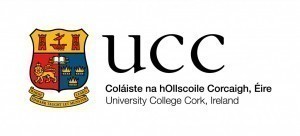10 December 2018
By Bryan Smyth
bryan@TheCork.ie
After Dutch doctors failed her, Adrienne Cullen, now terminally ill, fought the system and won. She went public with her story about how a major Dutch hospital lost her test results, leaving her with incurable cervical cancer. She’s now using the horror of those experiences to drive change in the medical profession.
Adrienne battled and won the biggest financial settlement for medical negligence ever paid in the Netherlands and will be conferred with an Honorary Doctorate of Laws (LLD) by University College Cork Monday December 10th.
A UCC Sociology and Philosophy graduate, Cullen, 58, has described the parallels between her own story and that of Vicky Phelan as “striking and deeply disturbing”.
In 2011 Adrienne underwent hospital tests in the Netherlands after becoming ill. Some of the results of those tests went missing. Unaware of this, her doctor assured her that she seemed healthy.
However, in 2013, a review of old pathology results found that a test for cancerous tissue which Cullen’s doctor had conducted two years previously had, in fact, been positive. By 2015, tests showed it had spread. Because of the delay, the cancer was now terminal.
After four major operations in as many years to remove five tumours, her treatment has been arduous, and has included two courses each of radiotherapy and chemotherapy. At the same time, she commenced a legal battle, that resulted in the hospital, University Medical Centre Utrecht (UMCU), to accept total liability and to settle.
An independent medical consultant, agreed on by both sides, concluded that if the test result had not been lost, she would have had a 95-98% chance of being ‘cured’. Instead, the diagnosis was terminal, with a life expectancy of 11 to 18 months, which she continues to confound.
Cullen, who grew up in Dublin and Limerick, convinced the hospital that they had not abided by any of the international norms for what is known as Open Disclosure After Serious Harm.
“My husband, Peter, and I were shocked that, having acknowledged liability, the hospital did absolutely nothing to provide practical advice, psychological support or pastoral care of any sort,” says Cullen.
“They simply threw the case to their legal department and told us: “talk to us only through our lawyers”. That’s an unacceptable way for a hospital to behave – and we weren’t having it.”
After putting pressure on the hospital to hold an annual Adrienne Cullen Lecture on Open Disclosure After Serious Harm, she and her doctors delivered the inaugural lecture in April this year.
“Silence and denial have no place”, says Cullen. “It’s only when patients and their doctors stand together that change happens.”
The Open Disclosure protocols that have since been put in place in UMCU are already being adopted by the country’s seven other teaching hospitals. The exact chain of events that led to the failure in communicating Cullen’s test results to her doctor has never been definitively established. However, her doctors believe the mistake happened because the hospital was, at the time, in the process of transitioning from paper to electronic medical records.
In the Netherlands, relatively few compensation claims make it to court, and large settlements are rare. Cullen and her husband eventually settled with UMCU for €545,000, including €350,000 to compensate for pain and suffering, and the rest for loss of earnings. Cullen and her husband repeatedly refused to sign a ‘gagging clause’. The hospital eventually removed it.
Adrienne’s book about her experiences has just been sent to the publishers and will be available early in 2019.


